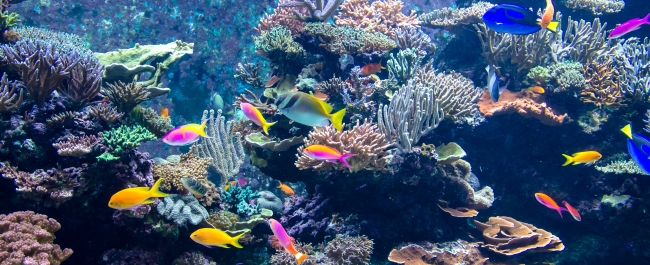Major gifts case study - Saving our oceans

The world’s oceans are a natural sponge, absorbing much of what we put into the atmosphere. That includes nearly a third of our CO2 emissions, causing seawater to become more acidic than at any other point in human history. Ocean acidification is not just jeopardising the world’s coral reefs; one in three of us depend on marine life as our primary source of protein.
Donations have brought PhD students and post-doctoral fellows to Bristol – people with the talent and ambition to better understand how marine organisms and ecosystems are adapting to falling pH. They are making new discoveries on the dispersal of coral larvae, the stability of reef structures and the impact of past ocean acidification events. The donations have also empowered academic leaders like Professor Daniela Schmidt to support decision-makers, through the IPCC as well as direct engagement with political leaders.
How to donate
Make a gift to us by emailing Nicola Giblin at nicola.giblin@bristol.ac.uk in our fundraising team stating that you wish the gift to go towards the Cabot Institute for the Environment.
Without funding for post-doctoral posts to support my research, it would have been impossible for me to dedicate so much time to my role as a lead author of the IPCC’s Working Group report. Through that work, I’ve been able to ensure that the message about the speed of ocean acidification, and its effects on marine organisms, is clearly heard on an international platform. I’m especially proud that our message has made it into the Summary for Policy Makers – the key document that will influence policymaking at both a national and an international level.
